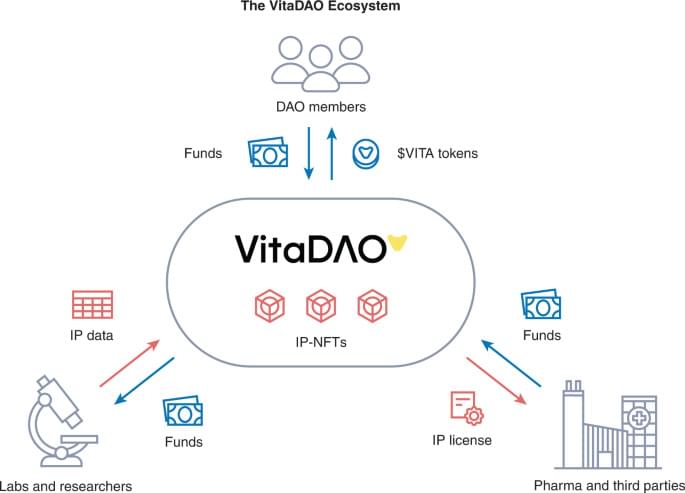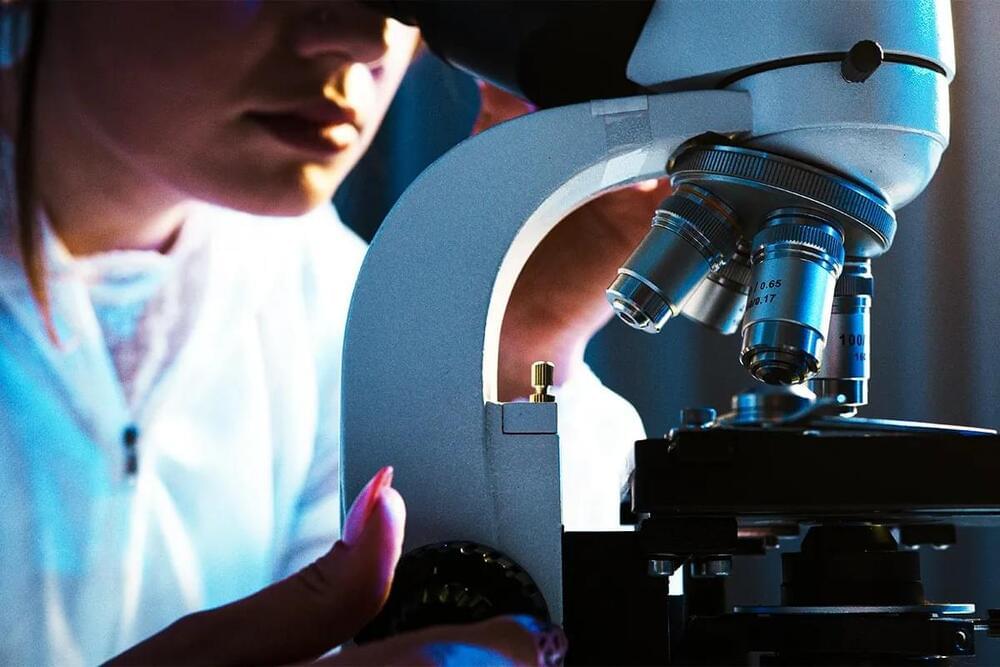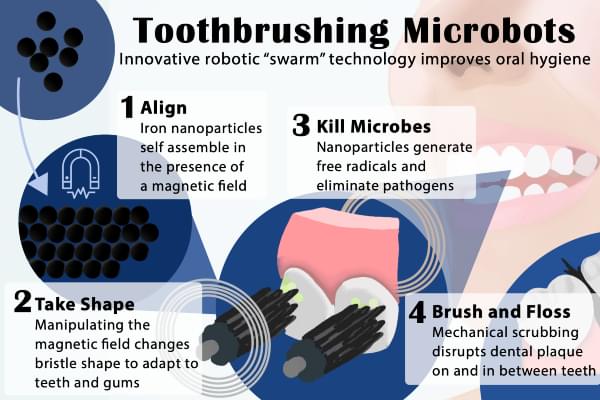
Category: biotech/medical – Page 1,620


Existential Hope Special with Morgan Levine
Foresight Existential Hope Group.
Program & apply to join: https://foresight.org/existential-hope/
In the Existential Hope-podcast (https://www.existentialhope.com), we invite scientists to speak about long-termism. Each month, we drop a podcast episode where we interview a visionary scientist to discuss the science and technology that can accelerate humanity towards desirable outcomes.
Xhope Special with Foresight Fellow Morgan Levine.
Morgan Levine is a ladder-rank Assistant Professor in the Department of Pathology at the Yale School of Medicine and a member of both the Yale Combined Program in Computational Biology and Bioinformatics, and the Yale Center for Research on Aging. Her work relies on an interdisciplinary approach, integrating theories and methods from statistical genetics, computational biology, and mathematical demography to develop biomarkers of aging for humans and animal models using high-dimensional omics data. As PI or co-Investigator on multiple NIH-, Foundation-, and University-funded projects, she has extensive experience using systems-level and machine learning approaches to track epigenetic, transcriptomic, and proteomic changes with aging and incorporate.
this information to develop measures of risk stratification for major chronic diseases, such as cancer and Alzheimer’s disease. Her work also involves development of systems-level outcome measures of aging, aimed at facilitating evaluation for geroprotective interventions.
Existential Hope.
A group of aligned minds who cooperate to build beautiful futures from a high-stakes time in human civilization by catalyzing knowledge around potential paths to get there and how to plug in.
Follow us!
Twitter: https://twitter.com/HopeExistential.
Instagram: https://www.instagram.com/existential.hope/
How to Stop (And Even Reverse) Aging
What does the future of aging and longevity hold? Can science hack the human lifespan? Even if we can, SHOULD we…?
People aren’t dying as early or as easily as they used to. Innovations in modern medicine, health, and hygiene helped us extend our lives by decades, but what comes next? Would you rather live to be a healthy and hearty 90 or live to be 150 but wither away for the last 60 years? We’ll talk about it in this episode of Far Out.
Far Out explores the future of science, technology, and culture and how these changes may affect humanity and life on Earth. The series is hosted by Swapna Krishna, a science journalist, podcaster, and sci-fi writer covering everything from NASA to Marvel, and produced for PBS by PBS North Carolina, the team behind the award-winning PBS series Overview.
#FutureOfAging #Lifespan #FarOut.
And keep up with Far Out and PBS Terra on:
Facebook: https://www.facebook.com/PBSDigitalSt…
Twitter: https://twitter.com/pbsds.
Instagram: https://www.instagram.com/pbsds


Hevolution Foundation announces new awards in aging biology and geroscience research
Hevolution Foundation, a non-profit organisation that provides grants and early-stage investments to incentivise research and entrepreneurship in healthspan science, and the American Federation for Aging Research (AFAR) have today announced an international research grant programme to enable early-career investigators to conduct research into healthspan-expanding therapeutics and treatments.
Longevity. Technology: Founded in the belief that every person has the right to live a longer, healthier life, Hevolution Foundation is on a mission to drive efforts to extend healthy human lifespan and understand the processes of aging. With a focus on aging as a treatable process, the Foundation aims to increase the number of aging-related treatments on the market, compress the timeline of drug development and increase accessibility to therapeutics that extend healthspan.
A non-profit organisation headquartered in Riyadh, with an annual budget of up to $1 billion, Hevolution Foundation plans to open hubs in North America and other global locations to support a cutting-edge, global ecosystem of talent to propel aging and geroscience research forward and achieve medical breakthroughs to help humanity live healthier, longer.

Shapeshifting Microrobots Can Brush and Floss Teeth
Are you ready to put mini robots in your mouth?
Do you get lazy about brushing your teeth? Well, soon microbots could do the whole thing for you. A multidisciplinary team at the University of Pennsylvania has created a novel automated way to perform brushing and flossing through robotics, according to a press release published by the institution last month.
The development could be particularly useful for those who lack the manual dexterity to clean their teeth effectively themselves.
A shapeshifting robotic microswarm may one day act as a toothbrush, rinse, and dental floss in one.
The technology, developed by a multidisciplinary team at the University of Pennsylvania, is poised to offer a new and automated way to perform the mundane but critical daily tasks of brushing and flossing. It’s a system that could be particularly valuable for those who lack the manual dexterity to clean their teeth effectively themselves.
The building blocks of these microrobots are iron oxide nanoparticles that have both catalytic and magnetic activity. Using a magnetic field, researchers could direct their motion and configuration to form either bristlelike structures that sweep away dental plaque from the broad surfaces of teeth, or elongated strings that can slip between teeth like a length of floss. In both instances, a catalytic reaction drives the nanoparticles to produce antimicrobials that kill harmful oral bacteria on site.

Eavesdropping on Communication Between Fat and Brain
Summary: Newly discovered sensory neurons send information related to stress and metabolism from adipose fat tissue to the brain.
Source: Scripps Research Institute.
What did the fat say to the brain? For years, it was assumed that hormones passively floating through the blood were the way that a person’s fat—called adipose tissue—could send information related to stress and metabolism to the brain.
Scientists Say They Found the Genes That Makes Immortal Jellyfish Immortal
Scientists study the immortal jellyfish to learn about its DNA reproduction, life cycle and telomeres. New research reveals its special genes.

Will we ever define the conscious mind?
Some neuroscientists believe we will never solve the hard problem. Just as a goldfish will never be able to read a newspaper or write a sonnet, Homo sapiens, these scholars argue, are cognitively closed to such knowledge. It is a great but impenetrable mystery. The psychologist Steven Pinker calls the hard problem “the ultimate tease… orever beyond our conceptual grasp.” Echoing the view that consciousness remains outside the limits of human comprehension, one of the best entries in Ambrose Bierce’s The Devil’s Dictionary is the following:
“Mind, n. A mysterious form of matter secreted by the brain. Its chief activity consists in the endeavor to ascertain its own nature, the futility of the attempt being due to the fact that it has nothing but itself to know itself.”
Others believe that if we just keep solving the easy problems, the hard problem will disappear. By locating and understanding what we call the neural correlates of consciousness (NCC) — neural mechanisms that researchers say are responsible for consciousness, typically gleaned using brain scans or neurosurgery to compare conscious and unconscious states — we will march ever closer to solving the mystery, until one day there is nothing left to solve. Defining an NCC starts as a process of elimination: the spinal cord and cerebellum can be ruled out, for instance, because if both are lost to stroke or trauma, nothing happens to the victim’s consciousness. They still perceive and experience their surroundings as they did before. The best candidates for NCC (so far) are a subset of neurons in a posterior hot zone of the brain that comprises the parietal, occipital and temporal lobes of the cerebral cortex. When the posterior hot zone is electrically stimulated, as it sometimes is during surgery for brain tumors, a person will report experiencing a menagerie of thoughts, memories, sensations, visual and auditory hallucinations, and an eerie feeling of surrealism or familiarity. So if the consciousness illusion is located anywhere, it might be in this mysterious region of the posterior cortex.